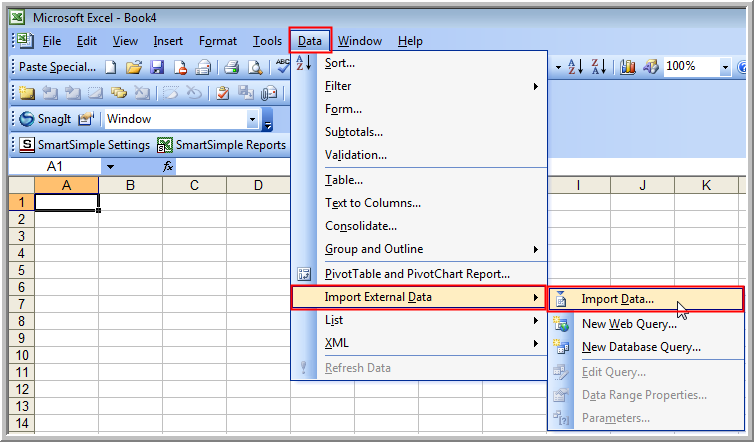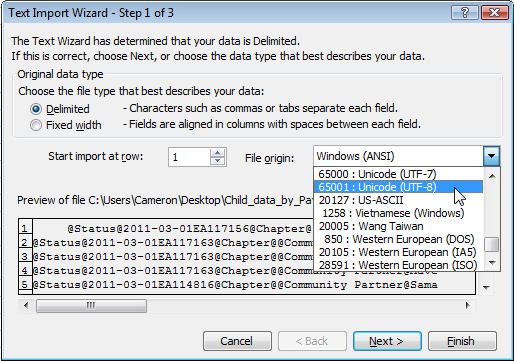Exporting Reports with Special Characters to Excel
In order to support Special Characters, such as French-accented letters, Euro symbols, etc., SmartSimple uses UTF-8 encoding throughout the system, including when reports are exported.
When opening files Microsoft Excel always imports using ASCII, so special characters encoded using UTF-8 do not appear correctly.
- This is a flaw with Excel.
In order to export data containing special characters from SmartSimple to Excel, use one of the procedures outlined below.
Import Data
- Open a blank worksheet in Excel
- From the Data menu select Import External Data followed by Import Data
- This will vary slightly depending on your version of Microsoft Excel. Check the Microsoft Website or Help Menu in Excel for assistance.
-

- Browse to the location of the exported report .txt file and click Open
- Select Unicode (UTF-8) as the File Origin and click Finish (UTF-8 normally appears near the bottom of the list)
-
- Choose the cell you wish to place the data and click OK.
CSV Data Security
When exporting data into a CSV format, files can become vulnerable to malicious CSV injection attacks. As a precautionary measure, an additional space will be added at the beginning of any values starting with at signs ( @ ), plus signs ( + ), minus signs ( - ), piping symbols ( | ), or equals signs ( = ). Therefore, when you export a file from Platform3 into a CSV format and later need to import that file into another system, please ensure you trim the additional space in front of any values.
Copy and Paste from Notepad/Wordpad
- Configure the report to export with txt as the file extension
- Export the report
- Open the report in Notepad or another text editor.
- You may need to right-click on the file and select Open With depending on what application your PC is configured to use for .txt files.
- Select and Copy the entire text of the report (Ctrl-A and then Ctrl-C)
- Open a blank worksheet in Excel
- Select the top-left cell and paste the text you copied (Ctrl-V)
Note: Notepad will not open very large reports, so another text editor such as Wordpad or Notepad++ should be used. Microsoft Word is not recommended.
Note: When using the Copy and Paste method for csv exported files you will need to use the Text to Columns function of Excel after following the above procedure.
